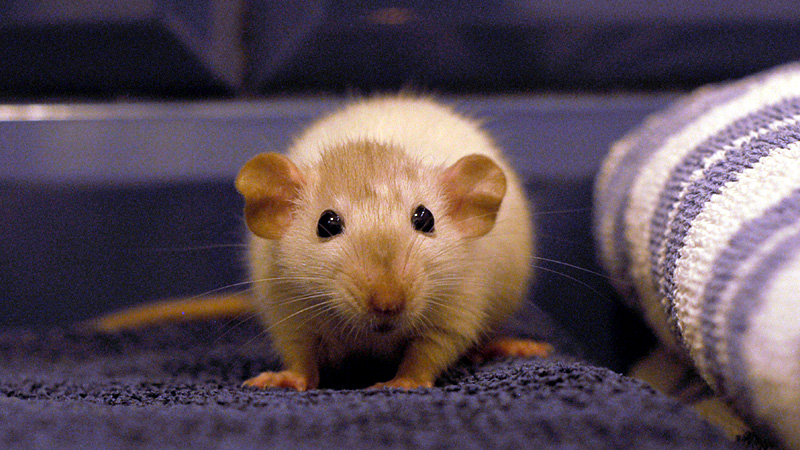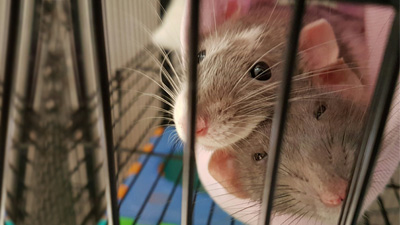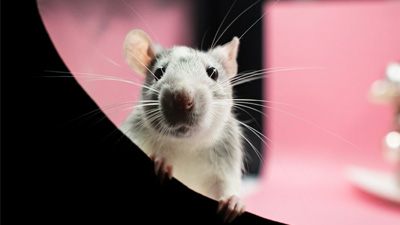How Long Do Pet Rats Live? Explore Their Journey

Photo by Oxana Golubets on Unsplash
Pet rats, with their playful nature and social demeanor, have become popular companions for many animal lovers. While they may be small in size, they bring joy and entertainment to their owners. However, before bringing home a pet rat, it is vital to understand their lifespan and the factors that can influence it.
In this article, we will delve into the fascinating world of pet rat longevity, exploring their average lifespan, factors that affect it, and ways to improve their quality of life.
The Average Lifespan of a Pet Rat
Pet rats typically live for 2 to 4 years in captivity. This relatively short time commitment makes them ideal pets for individuals who may not be ready for a long-term animal companion. However, it is essential to note that while most pet rats fall within this lifespan range, there have been cases where rats have surpassed expectations and lived up to 7 years. These exceptional cases, though rare, highlight the possibility of providing a rat with an extended and fulfilling life.
In comparison to their wild counterparts, domesticated rats enjoy a longer lifespan. Wild rats often face numerous challenges in their environment, including predation, limited access to food and water, and a lack of veterinary care. These factors, combined with their high metabolisms and rapid heart rates, contribute to a much shorter lifespan in the wild, usually less than a year.
Factors Affecting Lifespan
Several factors can influence the lifespan of a pet rat. Here are some key factors to consider:
Genetics and Breed
Just like any other living creature, the genetic makeup of a pet rat plays a crucial role in determining its overall health and lifespan. While all rat breeds have relatively short lifespans, some specific breeds may have slight disadvantages in terms of genetic predispositions to certain health issues. For example, hairless rats often experience more health complications, which can result in a shorter lifespan. Additionally, inbreeding can introduce mutations and deformities that can shorten a pet rat's lifespan.
Gender and Maturation
The gender of a rat can also impact its lifespan. Female rats typically live longer than their male counterparts and reach sexual maturity earlier in life. A female rat's pregnancy lasts for approximately 21 to 23 days, and they can have litters of 6 to 13 babies. The young rats are weaned at around 21 days and soon become sexually mature themselves.
Diet and Nutrition
Proper nutrition is crucial for the health and longevity of pet rats. A well-balanced diet consisting of high-quality pellets, supplemented with daily servings of vegetables and occasional fruits or lean meats, is essential. Monitoring their weight to prevent obesity, which can lead to various health conditions later in life, is also important. Rats have constantly growing teeth, so providing appropriate toys and chews is necessary to prevent tooth overgrowth and misalignment.
Husbandry and Care
Husbandry refers to the habitat, diet, and overall care of animals. The way a pet rat is housed and cared for greatly impacts its lifespan. Maintaining a clean and odor-free cage is essential to prevent upper respiratory issues. The room temperature should be kept between 65 and 80 degrees Fahrenheit, with humidity levels ranging from 40% to 70%. Avoiding wire floors, which can cause dermatitis, is crucial. Rats are highly social and intelligent creatures, so providing mental stimulation and social interaction is vital to their overall well-being.
Veterinary Care
Regular veterinary check-ups are crucial for detecting any potential health issues that may arise. It is recommended to schedule examinations every 6 to 12 months and consider periodic bloodwork and fecal parasite testing. Weighing your pet rat weekly allows you to monitor any changes and address them promptly. Discussing appropriate feeding amounts and schedules with a veterinarian ensures that your rat's nutritional needs are met. Spaying and neutering may also be recommended by veterinarians to reduce the risk of mammary cancer in female rats.
Socialization and Enrichment
Rats are social creatures that thrive in the company of their own kind. While they can form strong bonds with their human owners, providing them with the opportunity to interact with other rats is essential for their mental well-being. Rats should be housed in cages of sufficient size to avoid overcrowding. They also require at least 30 minutes of daily time outside of their cage for play and exploration. Providing a variety of toys, chews, and mental stimulation will keep them active, engaged, and mentally sharp.
Improving Your Rat's Lifespan
With a few simple strategies, you can significantly improve the lifespan and quality of life for your pet rat. Here are some key considerations:
Research and Preparation
Before bringing a pet rat into your home, thoroughly research the breed and its specific needs. Familiarize yourself with their dietary requirements, habitat preferences, and social behavior. This will ensure that you can provide appropriate care and create an optimal environment for your rat.
Quality Diet
Invest in high-quality rat-specific pellets and offer a variety of fresh vegetables daily. Occasional servings of fruit or lean meats, such as chicken, can also be included. Remember to monitor your rat's weight to maintain a healthy body condition.
Clean and Stimulating Environment
Keep your rat's cage clean and free from waste that can cause odors and respiratory problems. Provide mental stimulation and enrichment through rotating toys, offering exercise wheels, and ensuring their safety when exploring outside of the cage. Avoid wire floors and potentially hazardous objects.
Regular Veterinary Care
Schedule regular veterinary check-ups to monitor your rat's health. Periodic bloodwork and fecal parasite testing can catch any underlying issues. Follow your veterinarian's advice regarding spaying and neutering, which may help prevent certain health conditions.
Social Interaction
While rats enjoy human companionship, it is essential to provide them with opportunities for social interaction with their own kind. Consider housing them in pairs or small groups, ensuring that the cage size is appropriate for their needs.
Monitoring and Early Intervention
Monitor your rat for any changes in behavior, weight loss, coat condition, or swelling. Weight loss is often the initial sign of illness in rats. If you notice any concerning signs, consult with a veterinarian promptly to address any potential health issues.
By implementing these strategies, you can improve your pet rat's lifespan and provide them with a fulfilling and enriched life. Remember that each rat is unique, and their health and longevity may vary. Providing a loving and caring environment will give them the best chance at a long and happy life.
Conclusion
Pet rats may have a relatively short lifespan compared to other domestic pets, typically living for 2 to 4 years. However, with proper care, nutrition, and socialization, you can maximize their well-being and potentially extend their lifespan. Understand the genetic factors, attend to their diet and husbandry needs, ensure regular veterinary care, and stimulate their minds with enrichment activities and social interaction. By following these guidelines, you can embark on a rewarding journey with your pet rat, cherishing the moments you share and providing them with the best life possible.
You May Also Like
 Pet RatsWhich Are Better Pets: Male or Female Rats?
Pet RatsWhich Are Better Pets: Male or Female Rats? Pet RatsExploring The 4 Largest Pet Rat Breeds
Pet RatsExploring The 4 Largest Pet Rat Breeds Pet RatsWhat is the Best Number of Rats to Have as a Pet?
Pet RatsWhat is the Best Number of Rats to Have as a Pet? Pet RatsExploring the 7 Different Types of Pet Rats
Pet RatsExploring the 7 Different Types of Pet Rats Pet RatsWild Rats vs. Pet Rats: What Is the Difference?
Pet RatsWild Rats vs. Pet Rats: What Is the Difference? Help & AdviceExploring 10 Easiest Exotic Pets to Take Care Of
Help & AdviceExploring 10 Easiest Exotic Pets to Take Care Of